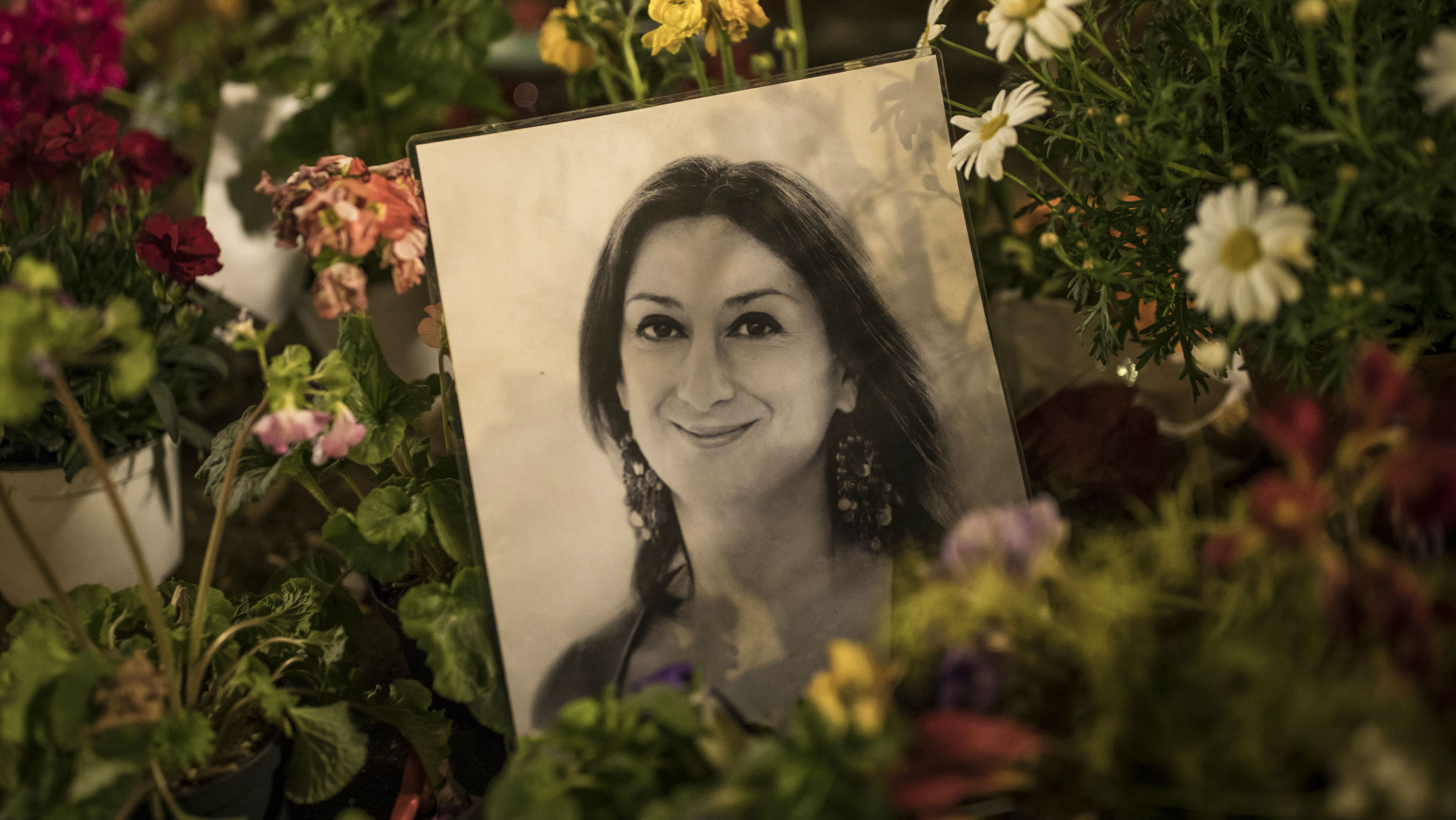Daphne Caruana Galizia murder: businessman arrested
Yorgen Fenech detained after Malta’s PM offers pardon to alleged middleman in return for identity of assassin

A free daily email with the biggest news stories of the day – and the best features from TheWeek.com
You are now subscribed
Your newsletter sign-up was successful
A Maltese businessman has been arrested in connection with the murder of journalist Daphne Caruana Galizia two years ago.
Yorgen Fenech was detained by armed officers after his yacht was intercepted trying to flee the island. The Times of Malta says he was believed to be en route to Italy, although that was not believed to be his final destination.
The dramatic swoop by Maltese armed forces came a day after the country’s Prime Minister Joseph Muscat promised an alleged middleman in Caruana Galizi’s murder a pardon in return for identifying the mastermind behind the assassination.
The Week
Escape your echo chamber. Get the facts behind the news, plus analysis from multiple perspectives.

Sign up for The Week's Free Newsletters
From our morning news briefing to a weekly Good News Newsletter, get the best of The Week delivered directly to your inbox.
From our morning news briefing to a weekly Good News Newsletter, get the best of The Week delivered directly to your inbox.
Three men - brothers Alfred and George Degiorgio and their friend Vincent Muscat (unrelated to the prime minister) - have been charged with triggering the car bomb that killed the renowned investigative journalist near her home in October 2017. All three pleaded not guilty in pre-trial proceedings.
Despite the arrests “Malta's handling of the case has drawn international criticism”, amid growing clamour to find out who ordered the killing and why, says the BBC.
In September, the government made a surprise u-turn and appointed a retired judge to head a public inquiry into the killing but “concerns about the time it has taken to bring her killers to book have led to questions about the rule of law in Europe’s smallest member state”, says The Guardian.
Over the course of a 30-year career, Caruana Galizia earned a reputation as a “one-woman WikiLeaks” for her work uncovering corruption in Malta.
A free daily email with the biggest news stories of the day – and the best features from TheWeek.com
–––––––––––––––––––––––––––––––For a round-up of the most important stories from around the world - and a concise, refreshing and balanced take on the week’s news agenda - try The Week magazine. Start your trial subscription today –––––––––––––––––––––––––––––––
Al Jazeera says “the prime minister and his family were among those accused by Caruana Galizia’s investigations and her blog, which often launched highly personal attacks”.
Muscat has faced opposition calls to resign over his handling of the case and alleged links between members of his administration and Fenech.
A subsequent investigation by the Daphne Project, a collective of journalists set up to continue Caruana Galizia’s reporting and investigate her death, reported last year that Fenech was the owner of a shell company called 17 Black.
Before she died, Caruana Galizia reported that the company was due to make substantial payments into two other shell companies, registered in Panama, belonging to two members of Malta’s ruling Labour administration.
-
 6 exquisite homes with vast acreage
6 exquisite homes with vast acreageFeature Featuring an off-the-grid contemporary home in New Mexico and lakefront farmhouse in Massachusetts
-
 Film reviews: ‘Wuthering Heights,’ ‘Good Luck, Have Fun, Don’t Die,’ and ‘Sirat’
Film reviews: ‘Wuthering Heights,’ ‘Good Luck, Have Fun, Don’t Die,’ and ‘Sirat’Feature An inconvenient love torments a would-be couple, a gonzo time traveler seeks to save humanity from AI, and a father’s desperate search goes deeply sideways
-
 Political cartoons for February 16
Political cartoons for February 16Cartoons Monday’s political cartoons include President's Day, a valentine from the Epstein files, and more
-
 Epstein files topple law CEO, roil UK government
Epstein files topple law CEO, roil UK governmentSpeed Read Peter Mandelson, Britain’s former ambassador to the US, is caught up in the scandal
-
 Iran and US prepare to meet after skirmishes
Iran and US prepare to meet after skirmishesSpeed Read The incident comes amid heightened tensions in the Middle East
-
 Israel retrieves final hostage’s body from Gaza
Israel retrieves final hostage’s body from GazaSpeed Read The 24-year-old police officer was killed during the initial Hamas attack
-
 China’s Xi targets top general in growing purge
China’s Xi targets top general in growing purgeSpeed Read Zhang Youxia is being investigated over ‘grave violations’ of the law
-
 Panama and Canada are negotiating over a crucial copper mine
Panama and Canada are negotiating over a crucial copper mineIn the Spotlight Panama is set to make a final decision on the mine this summer
-
 Why Greenland’s natural resources are nearly impossible to mine
Why Greenland’s natural resources are nearly impossible to mineThe Explainer The country’s natural landscape makes the task extremely difficult
-
 Iran cuts internet as protests escalate
Iran cuts internet as protests escalateSpeed Reada Government buildings across the country have been set on fire
-
 US nabs ‘shadow’ tanker claimed by Russia
US nabs ‘shadow’ tanker claimed by RussiaSpeed Read The ship was one of two vessels seized by the US military